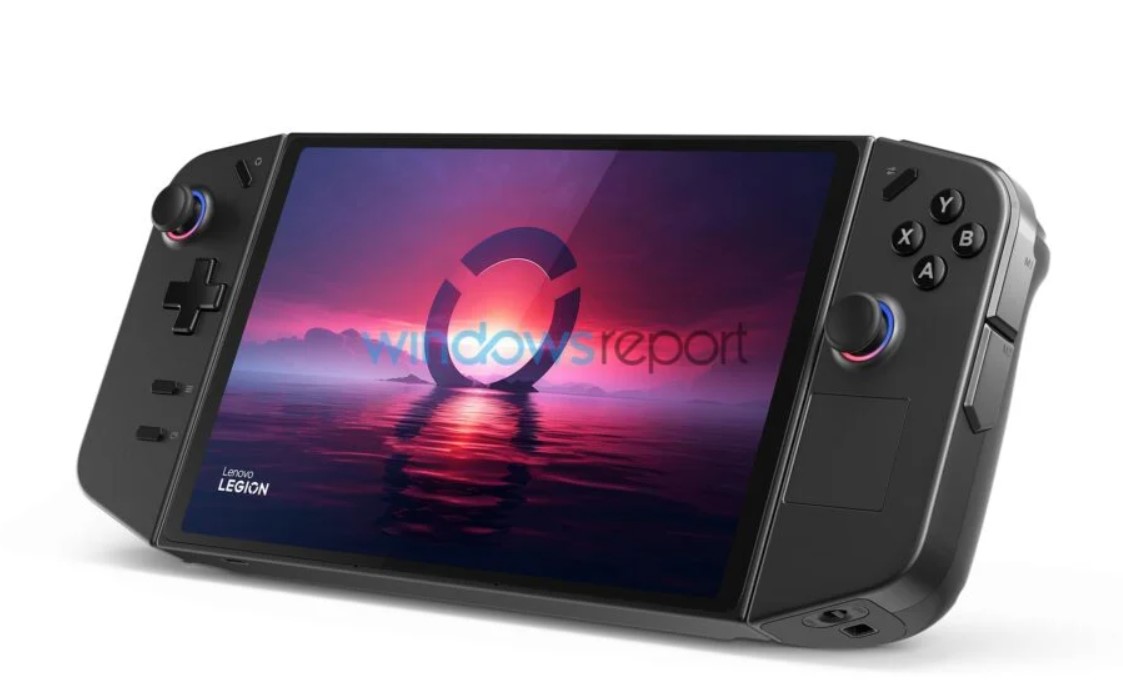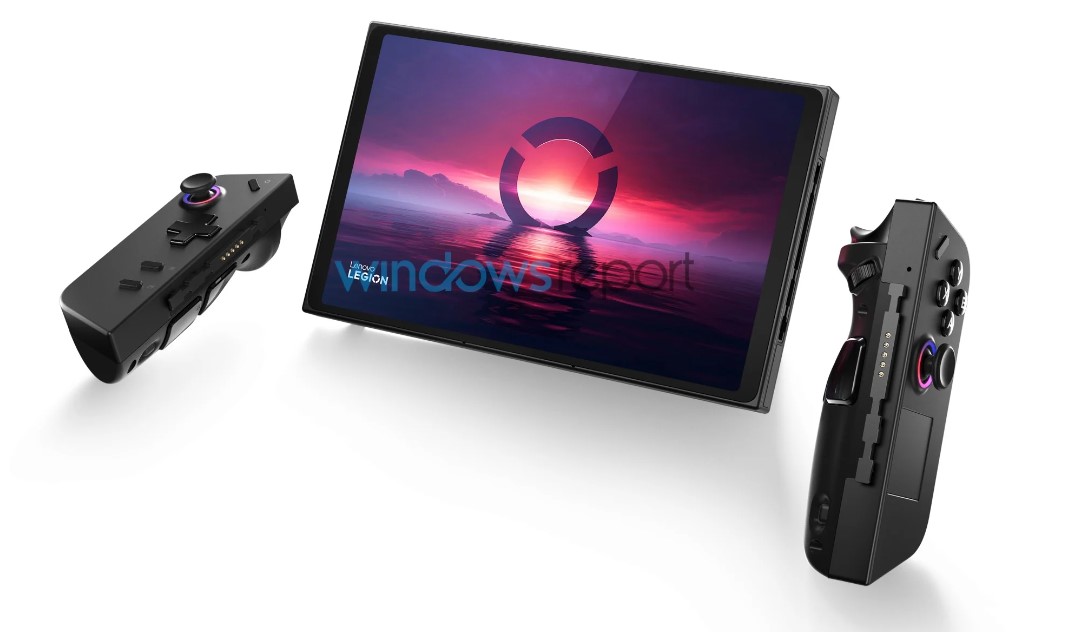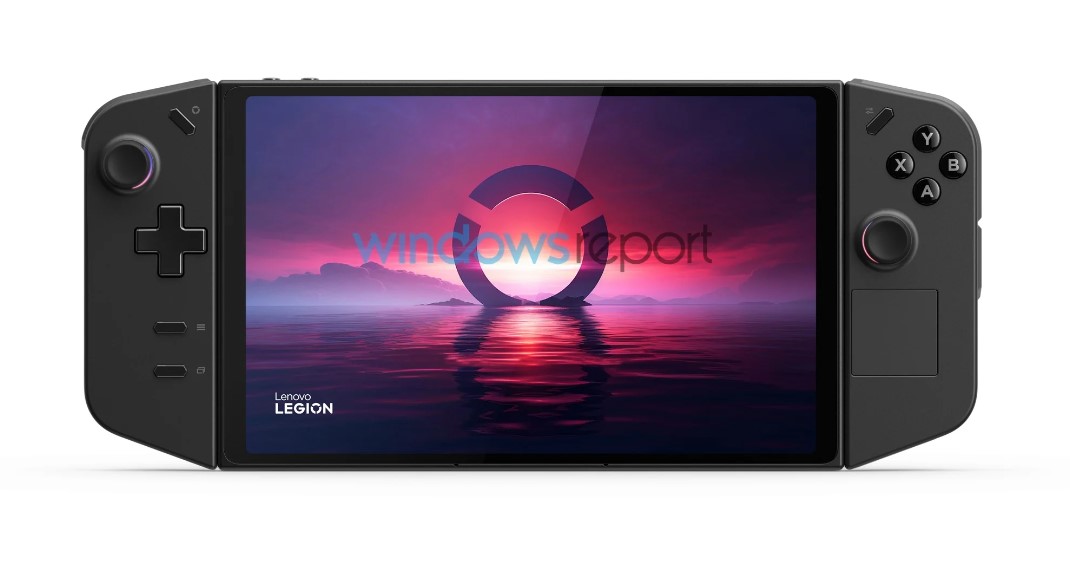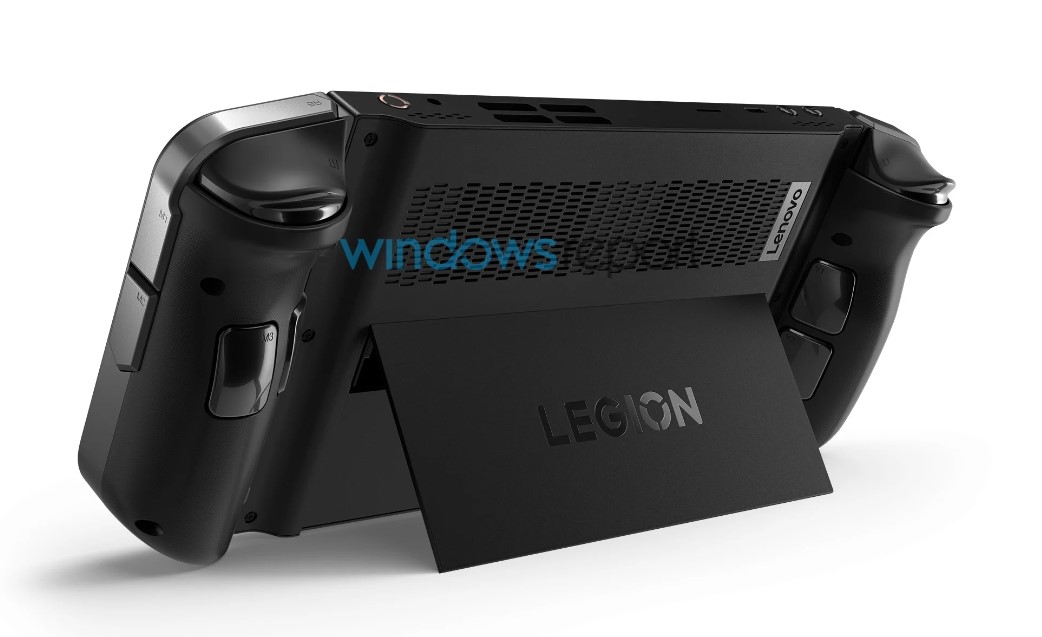
What you need to know
- Recently, we exclusively revealed that Lenovo is working on a new handheld to compete with the Steam Deck, Nintendo Switch, and ASUS ROG Ally.
- This Windows-based device looks to be the successor from the Lenovo Legion Play, which never released globally.
- Dubbed the Lenovo Legion Go, another outlet recently revealed press images of the device, ahead of its likely fairly imminent reveal.
- It looks like a hybrid of Nintendo Switch, Steam Deck, and ROG Ally, and we're here for it.
- Read on for details, and drop a comment!
Last week, we exclusively revealed the Lenovo Legion Go, although we didn't have a great idea of how the device looked. Our sources indicated to us that it would be Windows-based, giving it the full breadth of the ecosystem, including Steam, PC Game Pass, Battle.net, and beyond. Now, thanks to a new report, we have a better idea of how this thing looks.
The Lenovo Legion Go is a black handheld that is strongly reminiscent of recent devices like the Steam Deck, or ASUS ROG Ally. It looks notably thicker than the ASUS ROG Ally, however, with edges that are large enough to house side buttons in addition to reverse triggers. The reverse of the device is ergonomically cut, with a large ventilation grill for heat dispensation, complete with a much-needed kickstand that you can only get on an ASUS ROG Ally or Steam Deck using addons and mods. Our previous information suggested that this device would have an 8-inch screen, rather than the 7-inch displays currently found in the ROG Ally and Steam Deck, giving it another unique selling point for games that are typically designed for larger displays.
As you can see in the below gallery, the Legion Go does something else very unique compared to other PC gaming handhelds, though.




Undeniably borrowing from the Nintendo Switch (lawyers incoming?) the Lenovo Legion Go sports fully detachable controllers, or "nun chucks" as they've come to be known. The controllers are flush with various inputs, but perhaps most notable is the inclusion of a mini trackpad, a feature that I feel these devices desperately need in a world where Windows 11 simply is horrible to use with touch. The ASUS ROG Ally has a lot of custom software to enable touch and joystick navigation, but Windows does everything it can to frustrate that user input layer.
It looks a little chunkier than the ASUS ROG Ally as noted, which could indicate larger batteries or boosted cooling apparatus. There's been some speculation about what types of chips this device could sport, but it seems the potential exclusivity period that ASUS enjoyed on its Phoenix-based Ryzen chips may be coming to an end.
With press releases clearly making their way into leaksters' hands, we should know more official information very, very soon. I think it's entirely likely that the Lenovo Legion Go will be announced at one of the upcoming summer events, with IFA in Berlin in the first week of September or Gamescom towards the end of August. I absolutely love my ASUS ROG Ally, so seeing more competitors get into this space is extremely exciting.







